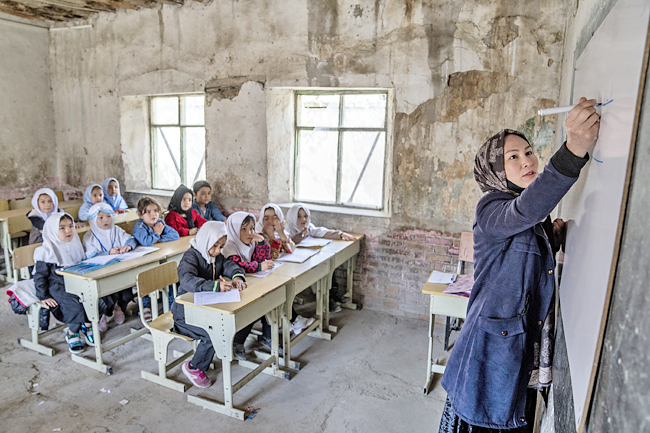ISLAMABAD (AP) – UNICEF said yesterday it is deeply concerned by reports of the Taleban pushing out international non-governmental organisations (NGOs) from Afghanistan’s education sector and ordering them to hand over their activities to local groups.
It’s the latest restriction on NGOs operating in the country after the ban imposed in December on Afghan female staff, allegedly because they weren’t wearing the Islamic headscarf, or hijab, correctly and weren’t complying with gender segregation in the workplace. In April, the ban was extended to the United Nations (UN).
A WhatsApp voice note, purportedly from a senior education official in Kabul, says all international organisations have a one-month deadline to transfer their education work to local groups.
The Education Ministry was not immediately available to verify the voice note, but aid agency officials told The Associated Press they are aware of the message and are taking it seriously. They spoke on condition of anonymity because they are not authorised to speak to the media.
The ban on Afghan female staff working at the UN was also relayed through a WhatsApp voice note, purportedly from a senior Taleban figure.
“As the lead agency for education in Afghanistan, UNICEF is deeply concerned by reports that over 500,000 children, including over 300,000 girls, could lose out on quality learning through community based education within a month if international NGOs working in the field of education are no longer allowed to operate and if handovers to national NGOs are done without comprehensive assessment and capacity building,” the agency said in a statement.
“UNICEF is seeking to better understand the reported directive, and what it could mean for the nationwide program that provides learning opportunities for children in some of the most remote and rural areas of Afghanistan.”
Around 17,000 teachers, including 5,000 women, work in UNICEF’s education activities.
UNICEF is meeting the Education Ministry in Kabul for further information.








